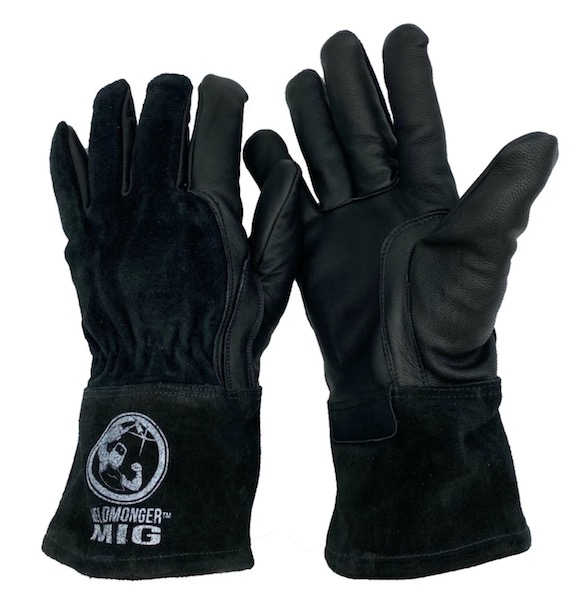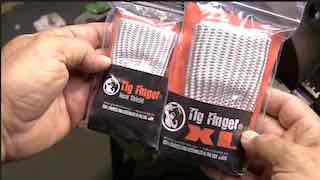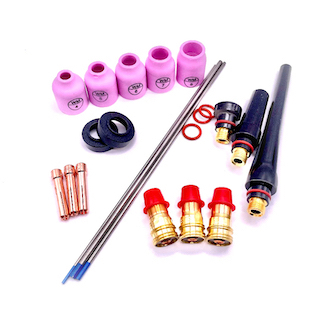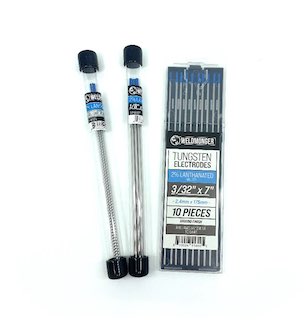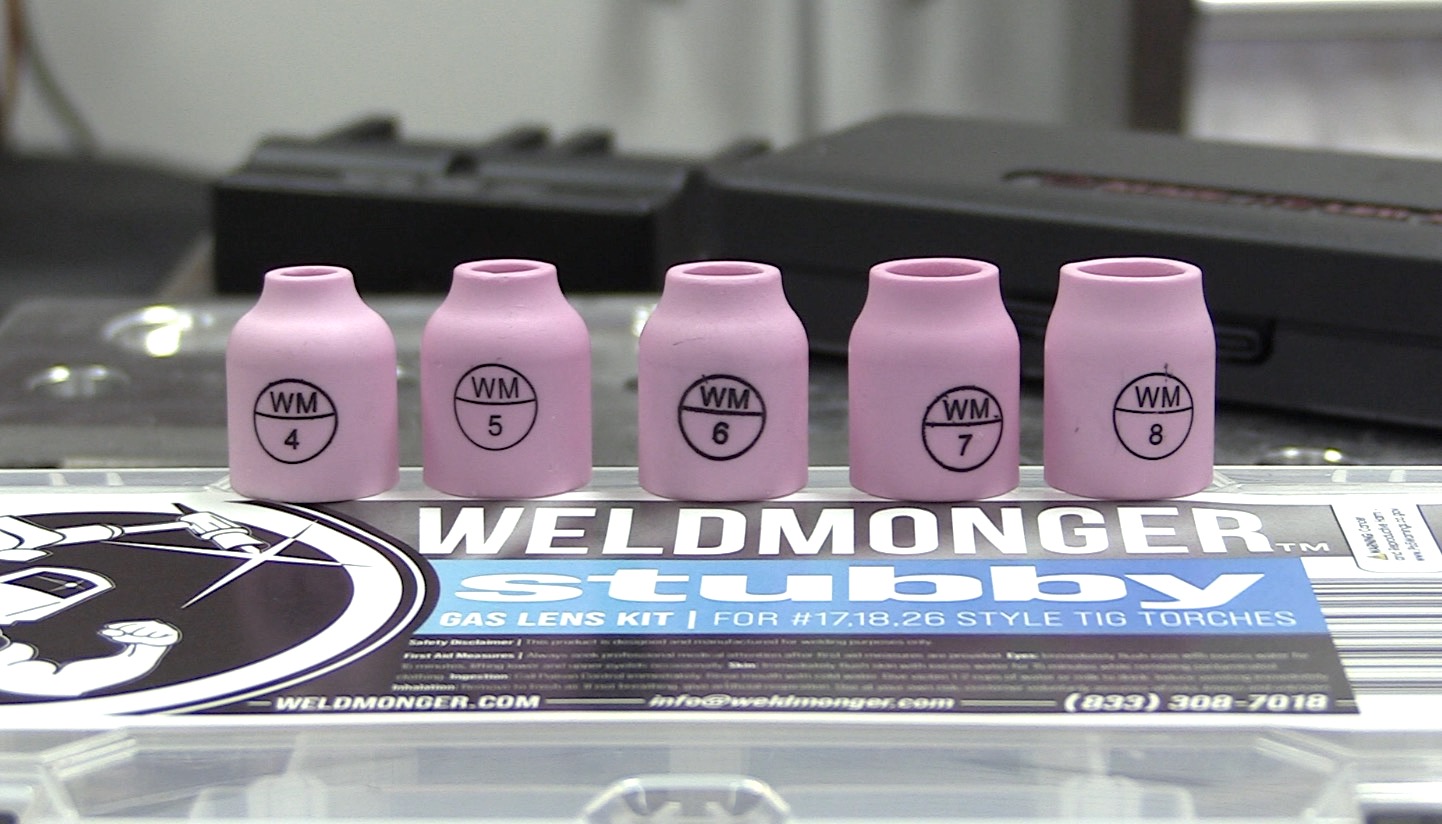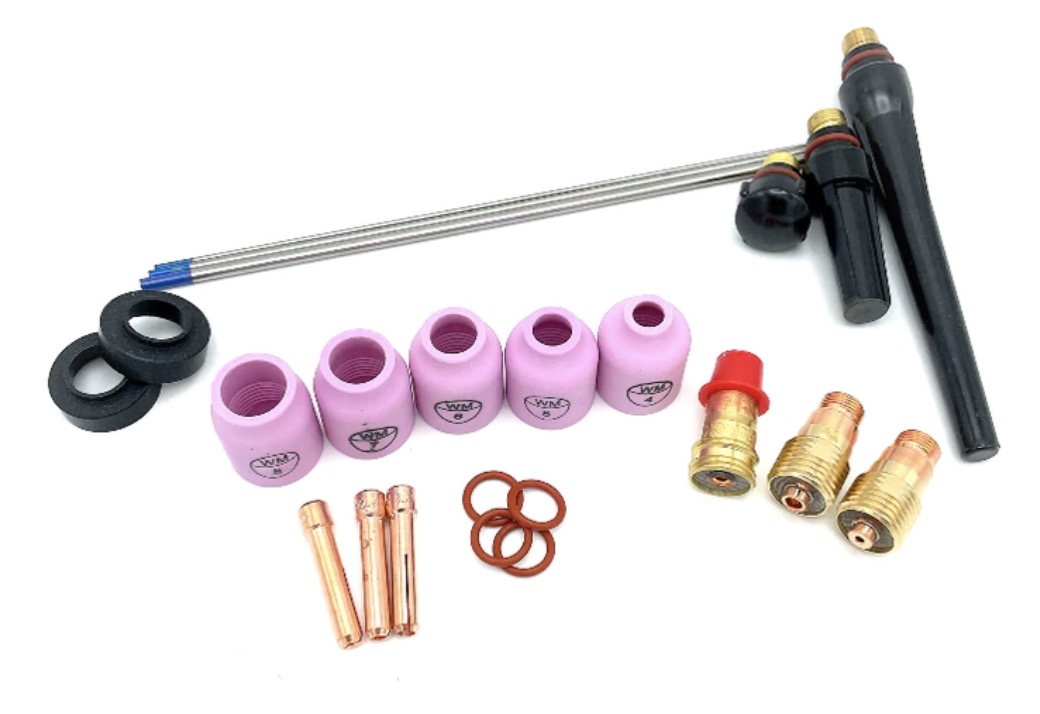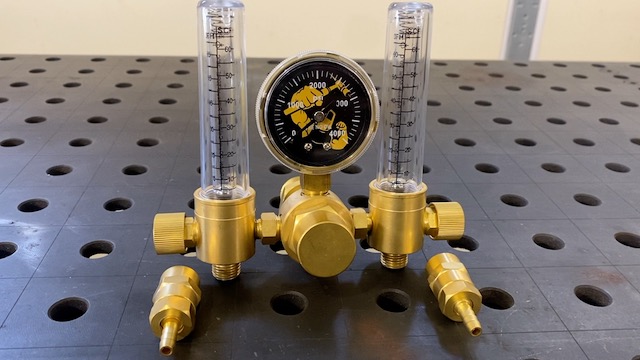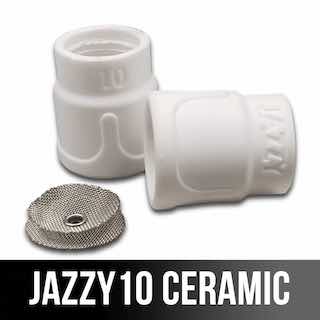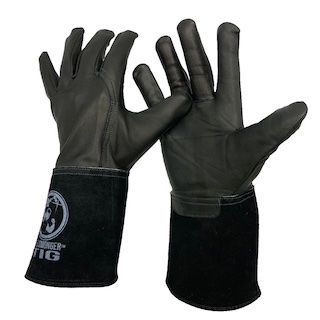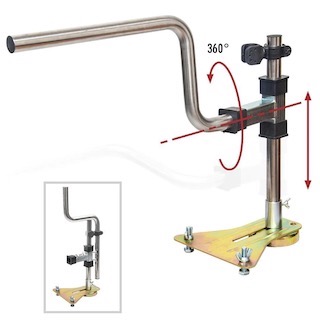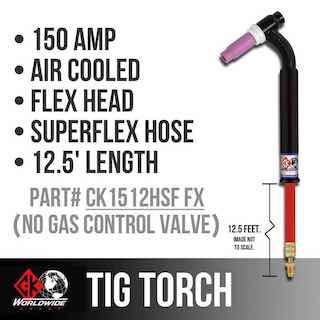Mig welding gas choices Lincoln Powermig 210mp
Welding on a Saturday with my Lincoln Powermig 210mp and ran out of C25 mig welding gas. (C25 is 75/25 ar/co2).
...and I really needed to get the job done and had plenty of 100% Co2 gas on hand and just enough C25 to run a few beads.
So why not show Co2 vs C25 vs Argon?
Thats exactly what I did. Along with a brief talk about weld symbols.
new products being added every month to the weldmonger store
does Co2 mig welding gas spatter a lot?
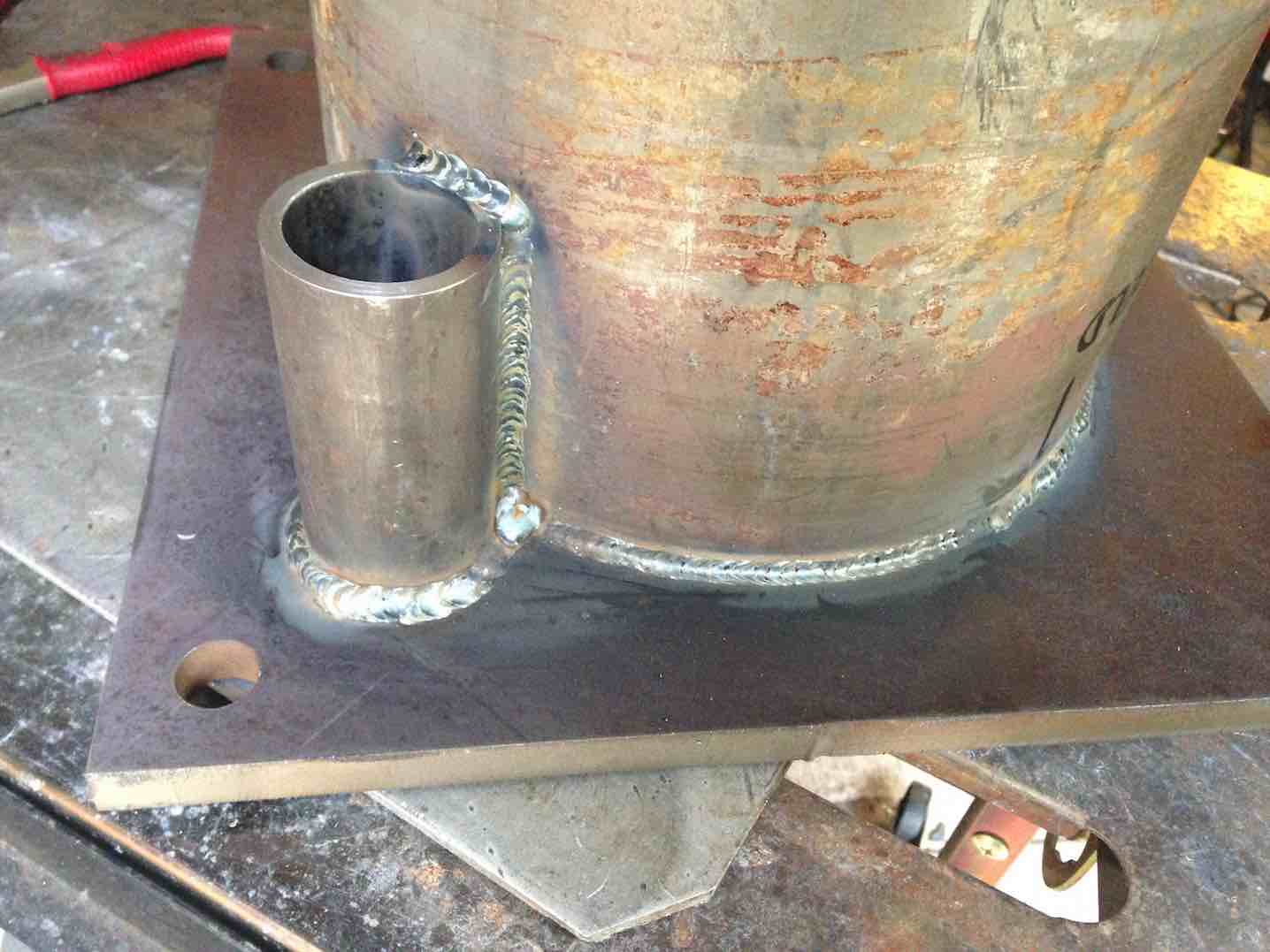
What difference does it make if I use c25, co2, pure argon?
Pure Argon is not a very good mig welding gas except for thin sheet metal. Even then, its hard to find good settings.
100% co2 works pretty good at 21 volts and under...especially if your mig welder has an inductance setting and you can adjust it up around 8.
C25 is my first choice for all around short circuit mig welding.
c25 mig weld using 19 volts, 280ipm of .030" wire
my first choice of mig welding gases is usually c25 = 75/25 argon/co2.
it works.
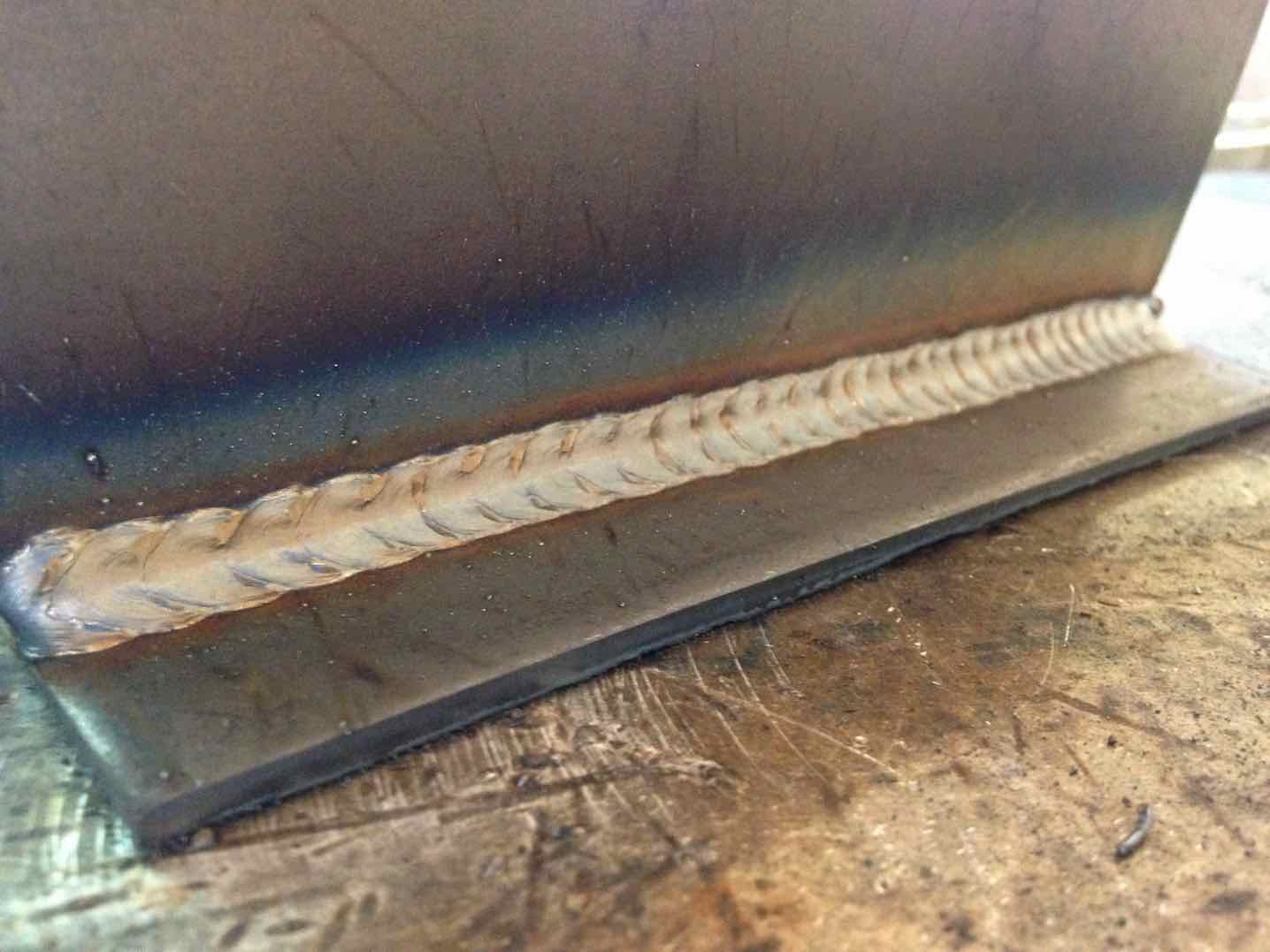
the right sweet spot settings along with c25 mig welding gas can help make a smooth spatter free weld.
mig weld made with pure argon
pure argon welds done with short circuit mig are typically ropey with a high crown.
...on steel that is.
But for aluminum mig, argon is the main gas used
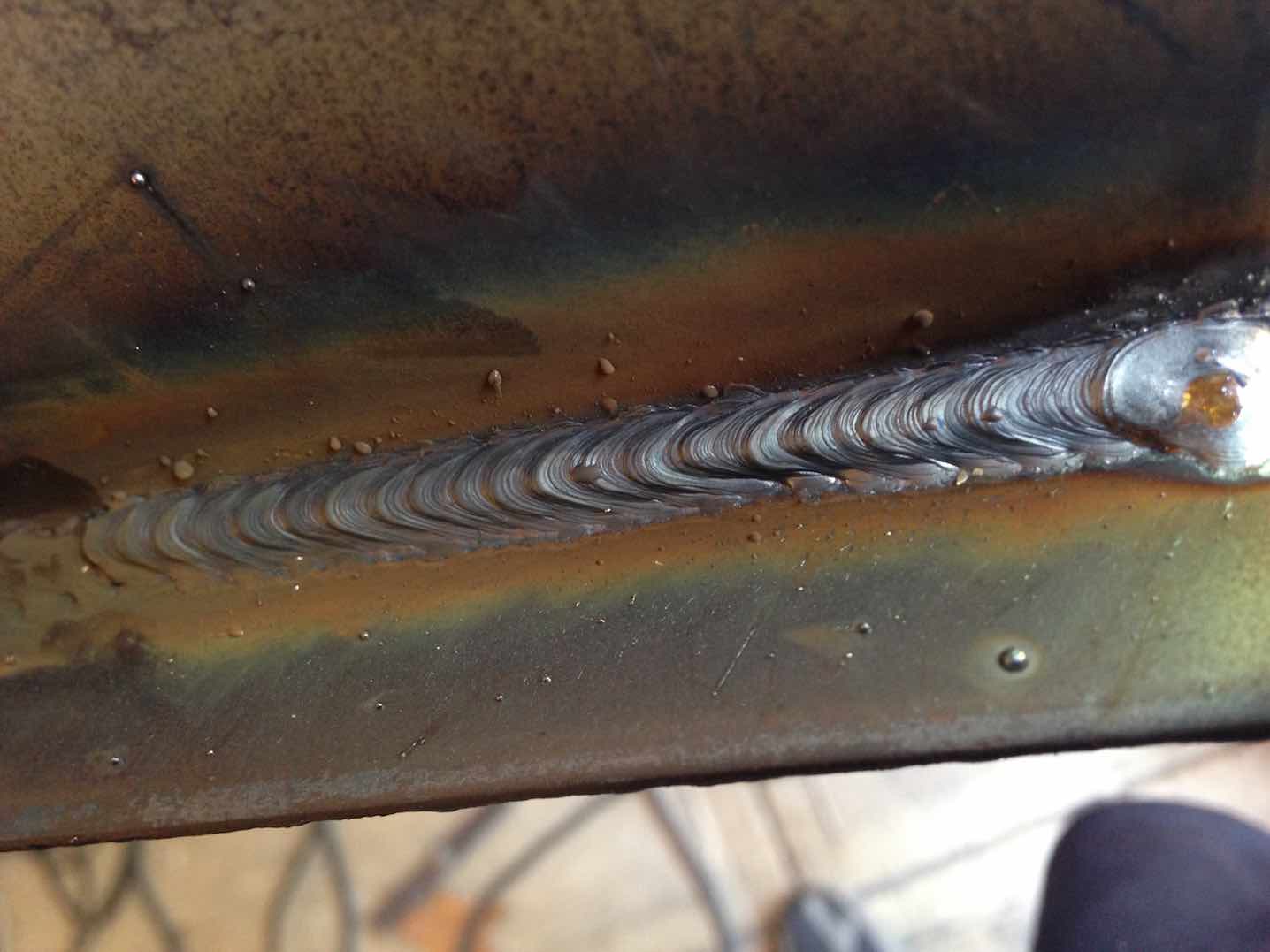
I would only use pure argon for a really thin sheet metal weld...or if I just had to fix something and had not other choice.
co2 mig weld
this weld was made using 21 volts, 300 ipm of .030" er70s6 with inductance set on 8. not too shabby but does not look as good as weld done with C25
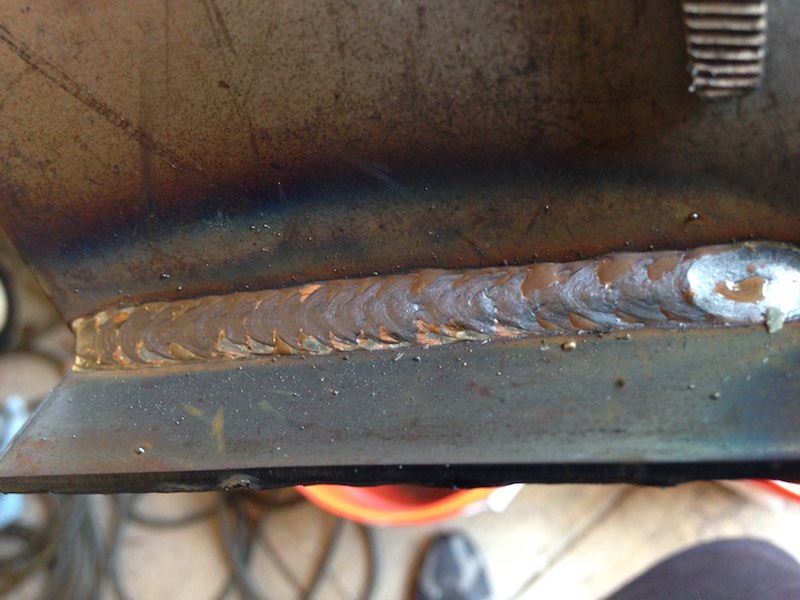
I read in a welding textbook once that Co2 produces lots of spatter.
While that might be true at the higher settings, 21 volts and under can produce some almost spatter free welds as long as the voltage and wire speed are balanced out.
when voltage and wire speed are balanced, you know it. its called the "sweet spot"
Also, inverter power sources like the Lincoln Power Mig 210mp often have an inductance setting.
Co2 seems to work well with inductance set high.
what is inductance?
Short circuit mig welding involves the wire actually "shorting out" in the weld puddle.
The wire actually plunges into the puddle momentarily and there is no arc gap.
when this happens, amperage rises and blows the wire just as if it were a fuse.
Thats when you get an arc again...and the arc is what generates heat.
This all happens many many times a second.
What the inductance setting does is control how quickly amperage rises when the wire shorts out in the puddle.... adding inductance slows the process down
A high inductance setting slows down the time it takes for the wire to blow like a fuse...and somehow that helps to create a puddle that "wets in" better.
the term "wetting in" is used to describe a puddle that lays down flat and flows into side walls nicely.
Basically, in short circuit mig welding, when the wire short circuits, the mig power source wants to spike amperage.
Added inductance Inductance slows the power supply's ability to react to the short circuit.

